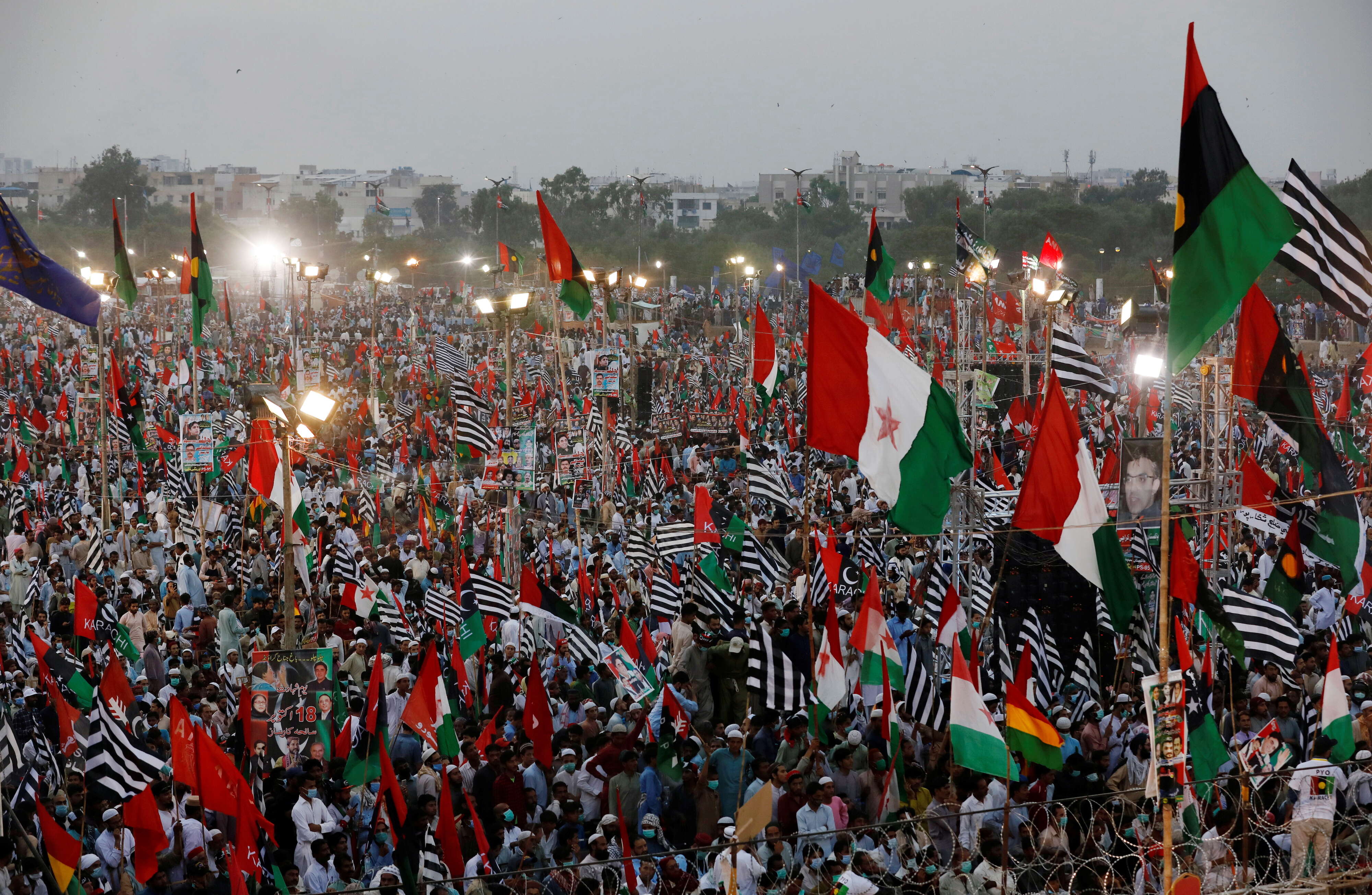
The Khan administration faces its biggest political challenge yet, as it tries to handle a backlash over rising food prices. Pakistan is importing sugar, tomatoes and the most wheat in a decade to stabilize prices after the South Asian nation witnessed its first economic contraction in roughly seven decades following a coronavirus lockdown.
At the same time, the government’s crackdown on opposition groups and the media has intensified. In an unprecedented move, two former prime ministers, Shahid Khaqan Abbasi and Nawaz Sharif, have been charged with treason for criticizing the military.
Pakistan’s powerful military commanders also face unusual criticism from opposition parties who have accused them of meddling in politics and overthrowing governments, intensifying pressure on Khan’s pro-army administration.
Sharif accused the army chief, General Qamar Javed Bajwa, and General Faiz Hameed, the head of the country’s spy agency, of plotting to overthrow his previous government to help bring Khan to power. His claim, made in a speech from London at a rally in Gujranwala on Friday, set the tone for a series of demonstrations by the 11-party opposition movement aiming to oust Khan from power in three months.
The army has always been criticized for its enormous role in politics and governance, but “this is the first time its top leaders have been appointed to overthrow elected governments,” said Naeem Ahmed, chairman of the international relations department of the Karachi University.
Opposition parties “feel insecure after a third political force emerged on the political horizon and formed a government with the clear support of the military establishment,” he said.

(Anti-government protest rally in Karachi)
Khan ‘worried’
Analysts have long seen that the army’s support is critical to Khan’s party, which has just 46% of the seats in parliament and relies on smaller coalition partners to stay afloat. A poll conducted by Gallup Pakistan last month found that 47% hold the Khan government responsible for destroying the economy, while 41% disagree. A majority of 51% agreed that the military should stay out of politics, while 40% said it has a role in the country’s politics and general management, according to the survey.
Khan’s “body language” shows that he is concerned, according to Shaista Tabassum, a political analyst from Karachi.
“Nawaz Sharif has dared to clash head-on with the establishment,” the former chair of the international relations department at the University of Karachi said by phone, referring to the army. “The opposition alliance is building momentum around their common agenda to overthrow Imran Khan. The system is very smart and will not support a government that is rapidly losing popularity. ”
The army, which has directly ruled Pakistan for about half of its existence since 1947, took a more active role in policymaking beyond national and foreign security issues after Bajwa met privately with top leaders. to find ways to boost the economy. The military has been instrumental in getting rival political parties to coordinate during the pandemic, while past and current officials are running key government programs, including the China Belt and Road projects in Pakistan and the main housing program. of Khan’s economic stimulus.
While the military has not responded to criticism from the opposition, Khan vowed to defend the military and accused Sharif of pursuing a “pro-India agenda.”
Sharif was jailed for seven years in a corruption case suspended by the Islamabad High Court nearly a year ago to seek medical treatment in London. He was disqualified by the Supreme Court in 2017 for failing to declare his assets, a verdict that Sharif said came under pressure from army chief Bajwa.
“Nawaz Sharif has crossed the point of no return,” said Burzine Waghmar, a fellow at the Center for the Study of Pakistan at SOAS University in London. “I don’t think Khan-Bajwa will give in under pressure despite growing dissatisfaction across the country. For now they will both have to have a hard time. ”
.